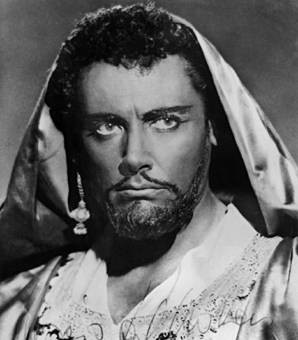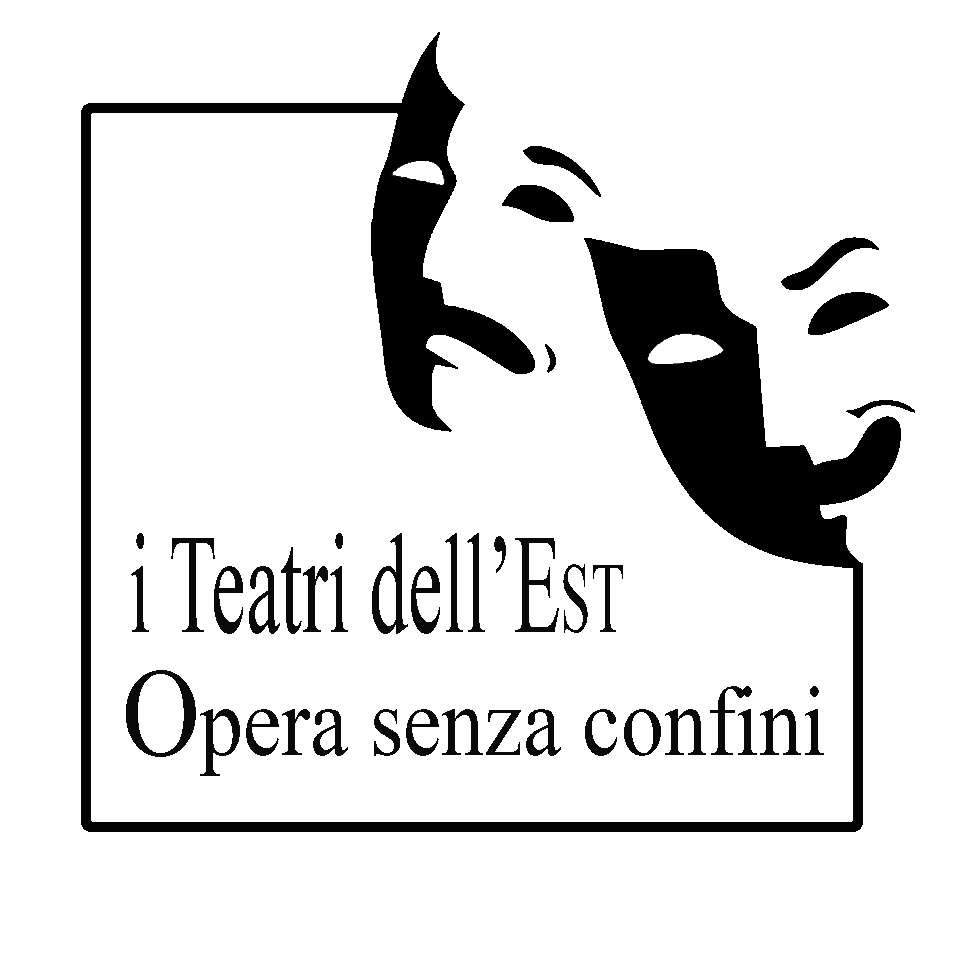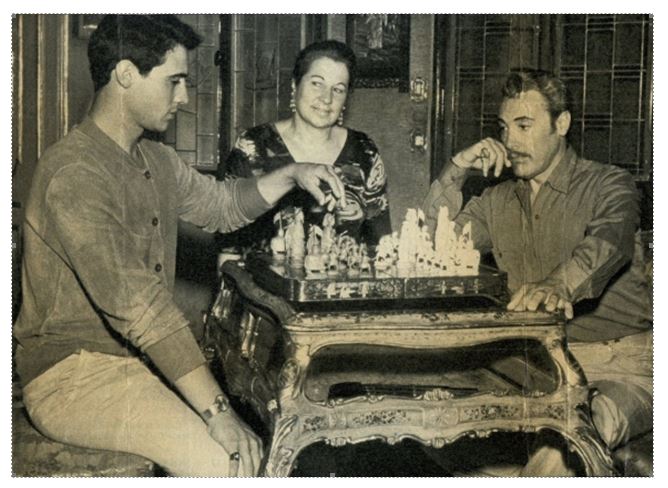INTERVIEW: GIANCARLO DEL MONACO, wonderful words for his father MARIO DEL MONACO, the OFFICIAL BIOGRAPHY
Maestro Giancarlo Del Monaco a career crowned by successes, acknowledgements and honours all over the world, director of the best shows that you had never seen, all published in video by Deutsche Grammophon, art director of important theatres and, as you usually say: “a tenor’s son”. I would just ask you something about this.
What does it mean for you to be Mario Del Monaco’s son, the man that for a lot of people is not simply a tenor, but the TENOR?
 I would like to divide clearly the father from the artist, but they were two overlapping, and often inseparable realties. Surely I lived an unusual and demanding situation. When I was a child I rarely saw my father, that was busy all over the world and surrounded by an aura of mythical fame. However I felt he loved me deeply. I am touched by the feeling that when I was born he was so happy that he called me his lucky charm and I tenderly remember that one day he was at the Metropolitan and I felt hill, so he left everything and rushed to me. When I opened my eyes he was by my side.
I would like to divide clearly the father from the artist, but they were two overlapping, and often inseparable realties. Surely I lived an unusual and demanding situation. When I was a child I rarely saw my father, that was busy all over the world and surrounded by an aura of mythical fame. However I felt he loved me deeply. I am touched by the feeling that when I was born he was so happy that he called me his lucky charm and I tenderly remember that one day he was at the Metropolitan and I felt hill, so he left everything and rushed to me. When I opened my eyes he was by my side.
Speaking with you, I can feel your adoration towards the Maestro but I can also feel his presence here. How and in which way, then, did your father help you in your professional training? Parlando con Lei, non solo si nota la Sua grande venerazione nei riguardi del Maestro, ma si avverte come la sensazione di averlo qui presente. Quanto suo Papà e in quale modo Le è stato d’aiuto, in termini di formazione professionale?
Above all through his sample that I deeply understood in its value, depth and complexity during my life: my father was a well-educated man, deeply devoted to his job that he loved so much
It’s known that you made your debut as director in 1965 at the Greek Theatre in Siracusa with Samson et Dalila and Mario Del Monaco was on the stage. It is not hard to imagine how important this memory is for you but have you got a more personal memory that you would tell us?
During my long career I collected so many memories that I could write a book.
After one hundred years from the great tenor’s birth, we finally have an official and authorized biography written by the professor Elisabetta Romagnolo. It is such a big and detailed work that it is impossible to think that you did not give her your contribution. Would you tell us what did you do concretely?
I gave her the complete availability of my father’s archive; we spoke and discussed about him. I have often used my memories.
Are you satisfied by the work or do you think that there is still something important that must be say?
I think that it is a wide and exhaustive work that focuses on the human and artistic complex personality of my father and in addition it gives a rich and accurate documentation.
I think that we have shortly pointed out some of our readers’ s points of interest about this excellent publication, would you tell us something about the headline: “MONUMENTUM AERE PERENNIUS”?
The subheading and the quotation from Horace’s poem, that I approved, underline the never ending value of my father’s art, that, as a classic, must stay in a preeminent place into the opera history.
Where the readers can buy the work?
 The volume, now at its second edition, is published by Azzali, Parma, but you can order it in each bookshop.
The volume, now at its second edition, is published by Azzali, Parma, but you can order it in each bookshop.
I thank you so much for your precious time that you spent with us, a last question, which are your next plans?
Now I am in a wonderful theatre in Astana, Kazakistan, where I direct the “Abay”, a modern opera focused on the great kazach intellectual that was poet, philosopher and cultural reformer in his country. This opera will be at the centre of important celebrations for the 550 years of Kazakistan. Then there will be the French edition of “Don Carlos” in Bilbao, “Andrea Chénier” in Florence (a coproduction with the Operà in Paris), “Luisa Miller” in Sidney, “Butterfly” in Warsaw….
Just another question, as you know our heading focuses on the eastern european theatres above all. Could you tell us something about the project with Spalato for Ernani?
I’m really concerned in this project, it is my second production in Croatia. The first one was in Zagreb sixteen years ago. Lana Kos shall be the female protagonist.
I really thank you Giancarlo Del Monaco, the greatest director.



